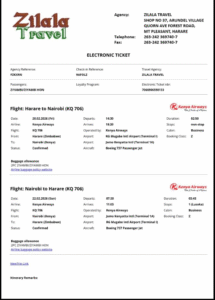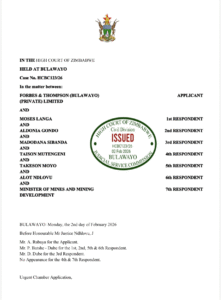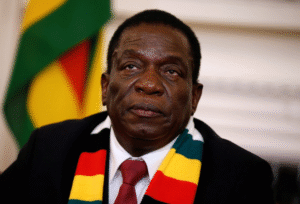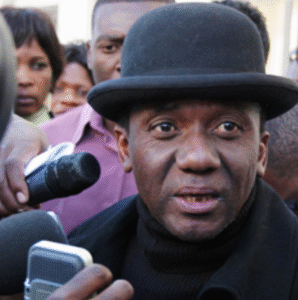HICHILEMA SKIPS SADC SUMMIT IN HARARE, ADDRESSES VIA VIDEO LINK

Zambian President Hakainde Hichilema has surprised many by not attending the Southern African Development Community (SADC) summit in Harare in person. Instead, he spoke via video link from Lusaka, the capital of Zambia. This development is significant, especially because of the tense relations between Zambia and Zimbabwe.
Hichilema is the outgoing chairperson of the SADC organ on politics, defence, and security co-operation. This SADC organ plays an important role in promoting peace and stability in the region. The President was expected to hand over the chairperson position to Tanzanian President Samia Suluhu Hassan at the summit. However, he did not travel to Zimbabwe for the event. Instead, he participated in the summit from Lusaka.
Lusaka is only a short 30-minute flight away from Harare, the capital of Zimbabwe, so his absence raised many questions. There was no official reason given for Hichilema’s choice to stay in Zambia instead of attending the summit in person.
During his video address, Hichilema talked about the important work of the SADC organ. He mentioned that the organ is focused on “consolidation of democracy, conflict mediation, and regional security and stability.” These are key areas for the region, which has seen its fair share of political challenges and security issues.
The SADC organ on politics, defence, and security co-operation helps countries in the region deal with conflicts and promotes peaceful solutions to political problems. It also works to make sure that democratic processes are followed in the region. This is very important for Southern Africa, where some countries have had problems with elections and political instability.
Hichilema’s decision to speak via video link and not travel to Harare in person is seen by some as a sign of the difficult relations between Zambia and Zimbabwe. The relationship between the two countries has been strained for some time. There are political differences between the leaders of the two countries, which could be a reason why Hichilema chose not to attend the summit in person.
Some analysts think that Hichilema’s decision could be because of these strained relations. Zimbabwe’s government, under President Emmerson Mnangagwa, has faced criticism for its handling of political issues and its approach to democracy. On the other hand, Hichilema has positioned himself as a leader who supports democratic reforms and has called for more respect for human rights in the region.
By staying in Lusaka and addressing the summit via video link, Hichilema may have been trying to avoid any tension that could arise if he were present in Harare. His absence could be a message that Zambia does not fully support the way things are being handled in Zimbabwe.
At the same time, Hichilema still fulfilled his duty as chairperson of the SADC organ. He handed over the chairpersonship to Tanzanian President Samia Suluhu Hassan and talked about the important work the organ does for the region. This shows that Zambia is still committed to the SADC and its goals, even if there are differences with Zimbabwe.
There is still no official explanation for why Hichilema chose not to travel to Harare for the summit. It is possible that there are other reasons for his decision, such as concerns about security or health. However, the political context cannot be ignored. The relationship between Zambia and Zimbabwe will likely continue to be watched closely by analysts in the region.
In the end, Hichilema’s decision to address the SADC summit via video link, rather than attending in person, has drawn attention. It highlights the complex political dynamics in Southern Africa, particularly between Zambia and Zimbabwe. As Hichilema hands over his role as chairperson of the SADC organ, it will be interesting to see how these dynamics play out in the future.
For now, the focus remains on the work of the SADC organ on politics, defence, and security co-operation, which continues to play a crucial role in promoting peace, democracy, and stability in the region.





